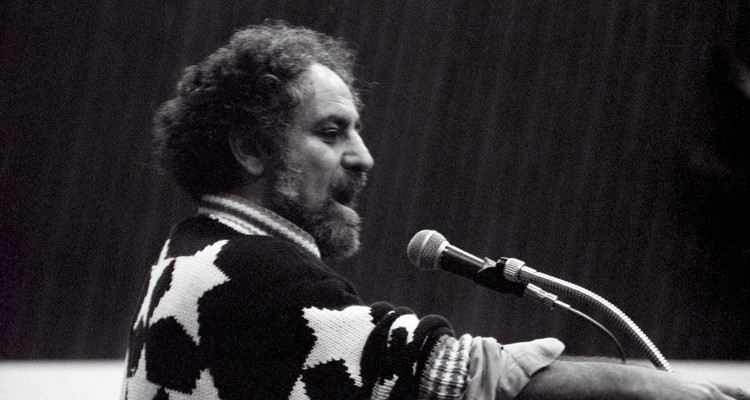In the Sept. 4, 1970, Aquin, then-student Joe Soucheray dropped the name Abbie Hoffman in an op-ed piece he wrote in response to recent Twin Cities' bombings in protest of the Vietnam War. The future Garage Logic radio host called Hoffman (and his cohort Jerry Rubin) "daily revolutionary characters" given to "absurd theatrical tactics." No further explanation was needed, such was Hoffman's stature as a household name.
Drop Hoffman's name today to a random passerby under 40, and a characteristic response is likely to be, "Who is she?" First things first: Abbot "Abbie" Hoffman was a man. He also was, arguably, the most celebrated social and political activist and anti-war dissident of his time. The FBI kept a file on him that was more than 13,000 pages long. A 1960's countercultural icon famous for his theatrical pranks on the economic and political powers-that-be, he spoke here Sept. 20, 1988, in the midst of the presidential race between George H.W. Bush and Michael Dukakis. He died seven months later at 52.
Hoffman co-founded, with Rubin, the Youth International Party – members of which he famously dubbed "Yippies" – a countercultural group of revolutionaries who advocated for peace and freedom of speech. His prominence grew with the "Chicago Seven" trial, at which he and other defendants, including Rubin, were accused of intent to incite a riot at the 1968 Democratic convention in Chicago. The months-long trial garnered enormous media attention for its regular bizarre courtroom antics, including the Yippies' nomination of a pig they christened Pigasus – and that they brought into court – for president of the United States.
During Hoffman's presentation at St. Thomas he wore a stars-and-stripes sweater and spoke on the potential of youth to bring about political change, the political climate of the time and his own experience as a student activist.
His animated speech, peppered with an occasional cuss, helped give rise to a St. Thomas chapter of Student Action Union, a multi-issue, national student organization that was comprised of independent chapters at various high school and college campuses. The chapters were dedicated to student empowerment, university democracy, and economic, racial, sexual and political equality and justice.
According to The Aquin (Sept. 30, 1988) Hoffman talked to 25 St. Thomas students for two hours after his lecture, helping them organize SAU at St. Thomas and offering his expertise on how to effectively protest college policies. At the time, a series of "beer party busts" had the St. Thomas campus roiling with controversy, as many students suspected university administration of videotaping off-campus parties and providing the footage to the St. Paul Police Department as evidence (which the SPPD denied).
When a reporter challenged why Hoffman would support what the reporter viewed as trivial, Hoffman stood by the students, declaring, "This issue has nothing to do with beer, just as the mandatory drug testing issue in this country has nothing to do with drugs. ... that may not seem important, but these students who will let the college know that they have the right to live in their town way off campus, are going to learn a hell of a lot more from organizing a Student Action Union than they will ever learn in school."







